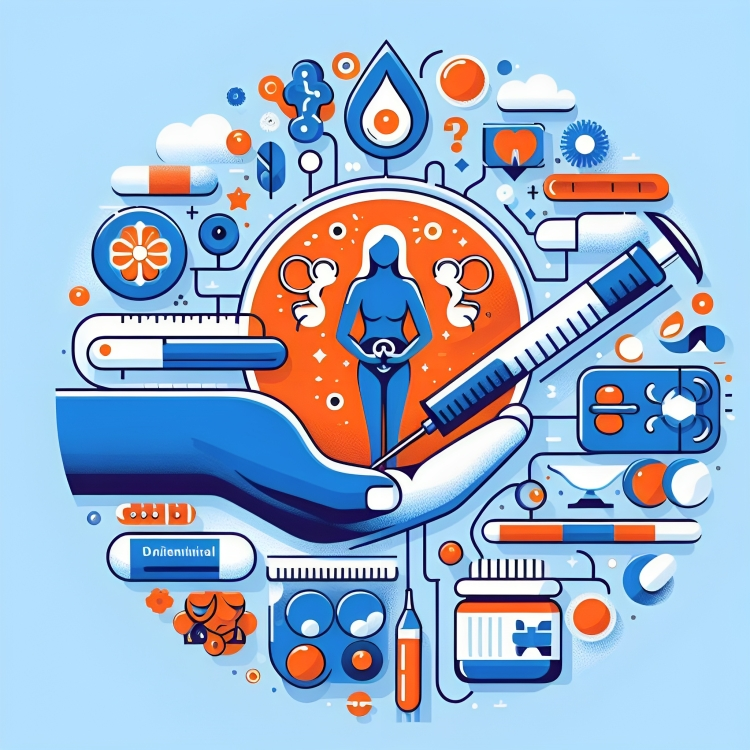How can infertility be cured?

How can infertility be cured?
Key Takeaways:
|
Aspect |
Details |
|
Medical Treatments |
Involves assisted reproductive technologies, medication, surgery |
|
Natural Approaches |
Includes lifestyle changes, supplements, holistic therapies |
|
Role of Nutrition |
Importance of dietary choices and supplements in fertility |
|
Personalized Fertility Assessment |
How tools like the Conceivable Score can guide treatment |
Infertility, a challenge faced by many couples worldwide, often leads to the pressing question: "How can infertility be cured?" Understanding the myriad of solutions, encompassing both medical and natural approaches is vital in navigating this complex issue.
Medical Treatments for Infertility:
Medical interventions are a cornerstone in addressing infertility. These methods can be broadly categorized into:
- Assisted Reproductive Technologies (ART): Techniques like In Vitro Fertilization (IVF) and Intrauterine Insemination (IUI) play a pivotal role. ART involves manipulating sperm and eggs or embryos in a lab, to facilitate a successful pregnancy.
- Fertility Medications: Drugs that stimulate ovulation can be the first line of treatment, especially in cases of irregular ovulation.
- Surgical Procedures: Surgeries like tubal ligation reversal or removal of uterine fibroids may be necessary to address physical impediments to fertility.
Natural Approaches to Enhance Fertility:
While medical treatments are effective, integrating natural approaches can enhance fertility prospects. These include:
- Lifestyle Modifications: Healthy body weight, regular exercise, and stress reduction are key. Avoiding harmful substances like tobacco and excessive alcohol is also crucial.
- Diet and Nutrition: A balanced diet rich in vitamins and minerals supports reproductive health. Supplements like Omega-3, known for its anti-inflammatory properties, can be beneficial.
- Holistic Therapies: Acupuncture, yoga, and mindfulness practices have shown promise in improving fertility outcomes by reducing stress and balancing the body's systems.
- High-quality supplements: Many supplements have been shown to significantly improve some of the underlying issues that are associated with infertility.
The Role of Nutrition in Fertility:
Nutrition plays an understated yet critical role in fertility. Nutrients like folic acid, iron, zinc, and vitamins D and E are essential for both men and women.
Supplements like Conceivable's Premium Pre-Conception Formula provide a comprehensive blend of vitamins and minerals specifically designed to enhance reproductive health.
Personalized Assessment for Tailored Treatment:
Every couple's journey to parenthood is unique, making personalized assessment tools indispensable. The Conceivable Score and Report offers a detailed analysis of your fertility health, providing insights to tailor your treatment approach.
Understanding the Conceivable Score: A Gateway to Personalized Fertility Solutions

The journey to resolving infertility often starts with understanding one's unique fertility profile. The Conceivable Score and Report is a revolutionary tool that offers a comprehensive analysis of your fertility health.
It takes into account various factors like menstrual cycle regularity, lifestyle, and medical history, offering a personalized score that reflects your natural conception potential. This insight is invaluable in guiding your choice of treatments and lifestyle adjustments.
Advanced Supplements for Fertility Enhancement:
A crucial aspect of natural fertility enhancement involves the use of targeted supplements. Products like Ubiquinol Gold Plus are specially formulated to support egg, sperm, and embryo health.
Ubiquinol, an active form of Coenzyme Q10, plays a significant role in cellular energy production and is critical for the development and viability of eggs and sperm.
The Impact of Environmental and Emotional Factors:
Environmental and emotional factors can significantly impact fertility. Exposure to certain chemicals, pollutants, and even everyday stress can affect hormonal balance and reproductive health.
Addressing these aspects through a holistic approach that includes stress management techniques, such as mindfulness and yoga, can be beneficial.
Collaboration with Healthcare Professionals:
Navigating infertility requires a collaborative approach. Working closely with healthcare professionals, including fertility specialists, nutritionists, and counselors, ensures that you receive comprehensive care.
They can guide the most suitable medical treatments and natural therapies based on your specific situation.
Conclusion:
Infertility, while challenging, is often a treatable condition. A combination of medical interventions, personalized assessments like the Conceivable Score, natural approaches including diet and supplements, and a supportive healthcare team can significantly enhance your chances of conception.
Understanding and addressing the underlying causes of infertility holistically offers the best chance for success. Here is a pie chart visualizing the distribution of different approaches to infertility treatment.
The chart equally represents five key areas: Medical Treatments, Natural Approaches, Nutritional Supplements, Personalized Assessment, and Environmental and emotional Factors.
This visualization underscores the comprehensive approach needed to effectively address infertility.
